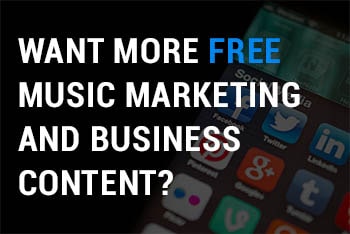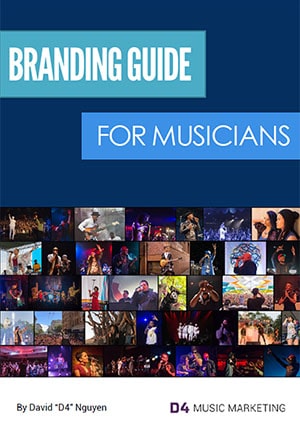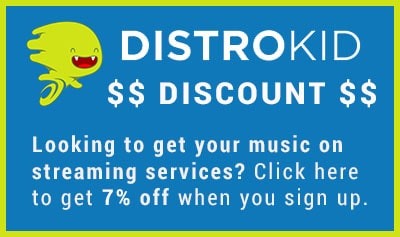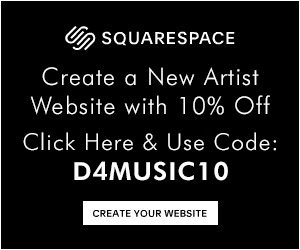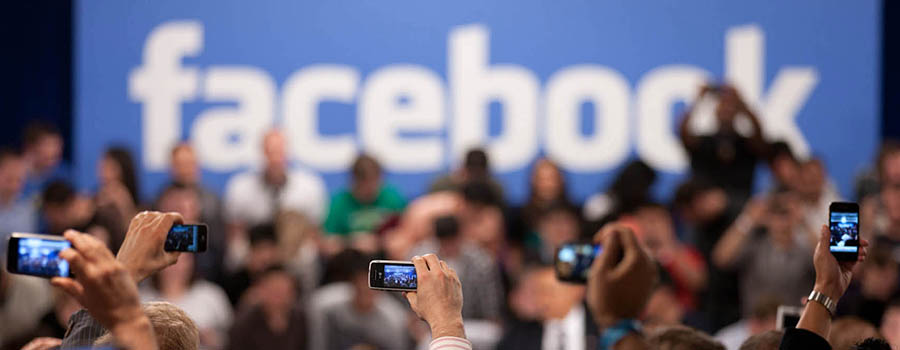
A drastic change has taken place on Facebook, and it is bad news for all brands, including musicians and music artists.
As many know, the Facebook newsfeed has been controlled by complex algorithms to determine what posts and content will show up in your feed based on a number of variables including: who you follow, what you post and your past interactions on the platform.
Back in 2016, Facebook announced a change to their news feed algorithm that would prioritize posts from friends and family and bring them to the top of your feed. Personally, I haven’t notice much of a difference since then, but it looks like they’re not done yet.
On January 11, 2018, the CEO of Facebook, Mark Zuckerberg, announced a big upcoming change on his Facebook page. Adam Mosseri, Head of News Feed, followed up with a blog that outlined these changes.
In a nutshell, because space in the news feed is limited, Facebook wants users to see “less public posts from businesses, brands and media” in their news feeds and more content from their friends and family. More specifically, they want to prioritize content that encourages “meaningful social interactions between people.” Facebook realized that the platform has become a passive content consumption experience, so they want to move away from that.
Why is Facebook doing this now?
Facebook wants to put “friends and family at the core of the experience” to strengthen our relationships and improve our well-being and happiness.
“The research shows that when we use social media to connect with people we care about, it can be good for our well-being. We can feel more connected and less lonely, and that correlates with long-term measures of happiness and health. On the other hand, passively reading articles or watching videos — even if they’re entertaining or informative — may not be as good.”
– Mark Zuckerberg
In a way, you can interpret this big change as Facebook returning back to its roots, where there was less focus on brands and businesses and more on people interacting with each other. For years now, Facebook has been oversaturated with content and noise, which could be why people have spent so much more of their time on other social media platforms.
What does this mean for music artists?
Just like with any other brands or businesses, musicians will need to change their strategy on how to reach their fans on Facebook. Before we get to that, here are some specific ways the new Facebook changes will impact you as a brand:
1) It will be harder to reach your fans organically on Facebook.
Users will see more posts from friends and family and less public content from brands, businesses and media. Organic reach before this change was only at 2%, so you can expect to see it drop even lower.
The VP of Facebook News Feed, Adam Mosseri, tells TechCrunch, “I expect that the amount of distribution for publishers will go down because a lot of publisher content is just passively consumed and not talked about. Overall time on Facebook will decrease, but we think this is the right thing to do.”
He continues on explaining the impact of the new process by stating:
“As we make these updates, Pages may see their reach, video watch time and referral traffic decrease. The impact will vary from Page to Page, driven by factors including the type of content they produce and how people interact with it.”
2) Certain content will be demoted.
Posts will be ranked differently, giving priority to “posts that spark conversations and meaningful interactions between people,” according to Facebook.
Video and articles tend to be passively consumed. Since content like memes, quote graphics and short consumable videos usually drive more likes and shares, but not really comments, you can expect them not to rank high in the news feed as well. But if Facebook’s algorithm categorizes the content, even video and news articles, as a discussion driver, it will probably rank higher in news feeds.
3) Posts that inspire back and forth discussion will be bumped up.
The main focus of these changes is to bolster interactions with people, as opposed to users engaging with brands. In other words, they want fans interacting with other fans, as opposed to fans interacting with musicians or artists.
Content examples Facebook indicates would get boosts from generating conversations would be live videos, Facebook Group posts, local business events and trusted news sources on important issues.
4) Comments are more valuable than likes or shares.
Posts and content that drive people to comment and interact more with each other will be a stronger ranking factor in the algorithm, but how that is determined is unknown.
However, we do know that longer comments will have more weight than short quick responses. Liking a post is a more passive engagement, so that won’t mean much to Facebook. Shares can be considered a form of passive engagement unless it’s posted with a comment. At this point, even though it’s speculation, I think people will more likely see your content if fans share to their page, as opposed to seeing it directly coming from another Facebook page.
5) External links to other sites and articles may be penalized.
Facebook wants people to stay on the platform and have the interactions take place there. Taking people away to articles or links outside of Facebook is not good because people are less likely to comment once they are off of Facebook.
This is something Facebook has already been doing. Some artists I know try to game the system by posting links in the comments, but I’m sure Facebook is aware of this workaround.
6) Facebook Ad prices will go up.
Exposure in the news feed has become even scarcer now, so the only guaranteed way to get eyes on your content is through Facebook Ads. Naturally, supply and demand dictate the cost for Facebook Ads will increase.
7) Algorithm kicks in at the post level.
It was also announced that personal profiles will be subject to the same changes as business profiles. This means that the algorithm will work at the post level and won’t account for where the post is coming from.
Some artists may like to share their music-related posts from their personal Facebook page as a way of circumventing the algorithm. However, with these changes, it won’t matter.
How should you adapt to these changes on Facebook?
As an artist, it’s going to be a unique challenge to adapt to these new changes.
Stop Engagement Baiting – Years ago, asking fans to like, share or comment in the caption used to be a viable strategy to get people to engage with your posts. Even before this change, Facebook has already been penalizing posts that ask fans to take specific actions, so it goes without saying that you can’t ask fans to comment with each other.
“Using “engagement-bait” to goad people into commenting on posts is not a meaningful interaction, and we will continue to demote these posts in News Feed.”
Encourage Fans to Use ‘See First’ Feature – This is one guaranteed way you can get your posts in your fans’ news feeds without having to pay. In the ‘Following’ tab right below the cover photo, fans have the option to make your page a ‘see first’ in their news feed. This makes sure your fans see your post at the top of their news feeds.
Use Facebook Live – When it comes to video, it sounds like Facebook will favor those who go live, as it’s been shown to create more dialogue and interaction than regular recorded video. For those who are not familiar with this feature, I put together this article: Facebook Live Guide for Musicians.
Research has shown that live videos lead to greater discussion among viewers and get an average of six times as many interactions as pre-recorded videos.
Learn Facebook Ads – If you haven’t already been using Facebook or Instagram Ads, now is the time. You will definitely have to pay to reach your Facebook fans, so it’s important to learn on your own how to do it effectively or find an expert to create ads for you.
Try Facebook Groups – Just from what I’ve been observing so far in my own news feed, I see that Facebook Groups I’m in are being prioritized over business, media or brand posts. If you have a Facebook Business Page for your music, you should be able to create a Facebook Group. Don’t do it purely as an attempt to circumvent these changes; however, if you have a large enough fan base, creating a special fan club with Facebook Groups could be something worth experimenting with.
Ask Questions – Obviously, what better way to spark conversation then to ask your fans a question!? It could be a text update or you can include an engaging photo. As mentioned earlier, longer comments are valued more than quick one or two-word responses. The tricky part with asking questions is you want fans to comment with each other and not necessarily just with you, the artist.
A couple years ago, Immortal Technique asked his fans in post to respond to the question “How did you first hear about my music?” This question received over 5.1k comments, which was a lot compared to the comments he got in other posts. The cool thing was people started talking to each other, because some of them shared a similar story.
Now this isn’t the perfect example that Facebook is looking for, but I really like this simple question that drove so many people to comment. The cool thing was Immortal Technique said he was going to try and read every story, which probably pushed more people to share. Apparently my story was like many others as it got 86 likes on that post.
Focusing on Quality over Quantity (Post Less) – Keep in mind that one of the problems that prompted this whole change in the first place was that there was an oversaturation of public posts. Feeding low quality posts is just adding to the noise, something Facebook does not want. The days of posting just to post are over.
“Pages making posts that people generally don’t react to or comment on could see the biggest decreases in distribution. Pages whose posts prompt conversations between friends will see less of an effect.”
Reduce or Avoid Promoting Shows on Facebook – This also means stopping automated reminders for upcoming shows from sites like Bandsintown. These types of posts have, in my experience, produced low engagement and result in more bad than good, especially with these changes.
In general, I have noticed posting about upcoming shows with a typical flyer tends to have a lower engagement on Facebook. You should limit these type of posts or ensure that they are done creatively. On the other hand, promoting a Facebook Event for your show may be bit better with these news feed changes.
I think the problem is that fans are less likely to engage with a post about a show that’s not in their area. A better option is to encourage fans to track or follow you on Bandsintown or Songkick (Spotify) because they get email notifications when you’re performing in their area.
Don’t Depend Only on Social Media – The changes discussed in this article show what it isn’t smart for artists to only depend on social media as a way to reach and stay in touch with fans. You are at the mercy of business decisions that you have no control over.
This is why having an email list is recommended. The reach is generally higher with an email list compared to social media, and you have ownership of your fan’s information. Read up on how to start building your email iist.
Watch for Trending Topics – It makes sense that people are more likely to talk about and have discussions on a relevant and timely topic. However, you should be careful with controversial, religious, social or political topics. Nothing gets people to interact with each other more than controversy. As long as the topic is relevant to your brand and what you stand for as an artist, then it could be a good way of generating conversation. Just don’t ever provoke your fans solely as a means to get comments.
Question for you
A month after the announcement in January, I’m already starting to notice more of my friends’ posts on the top of my news feed. Have you noticed the changes yet?



